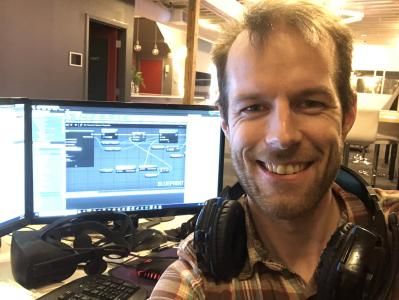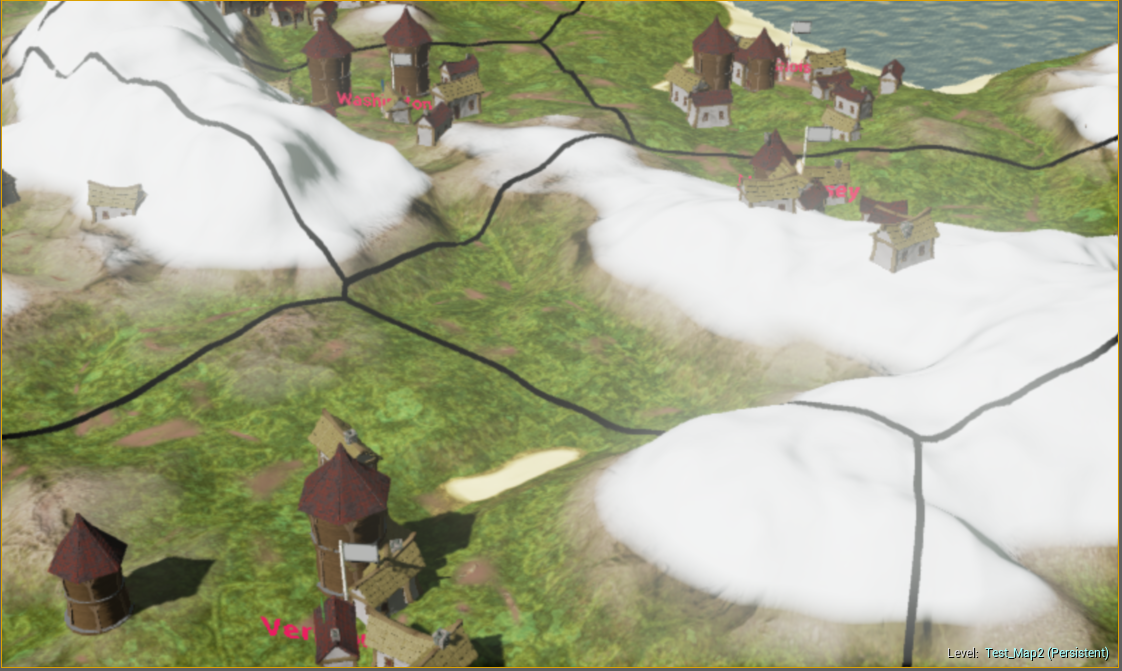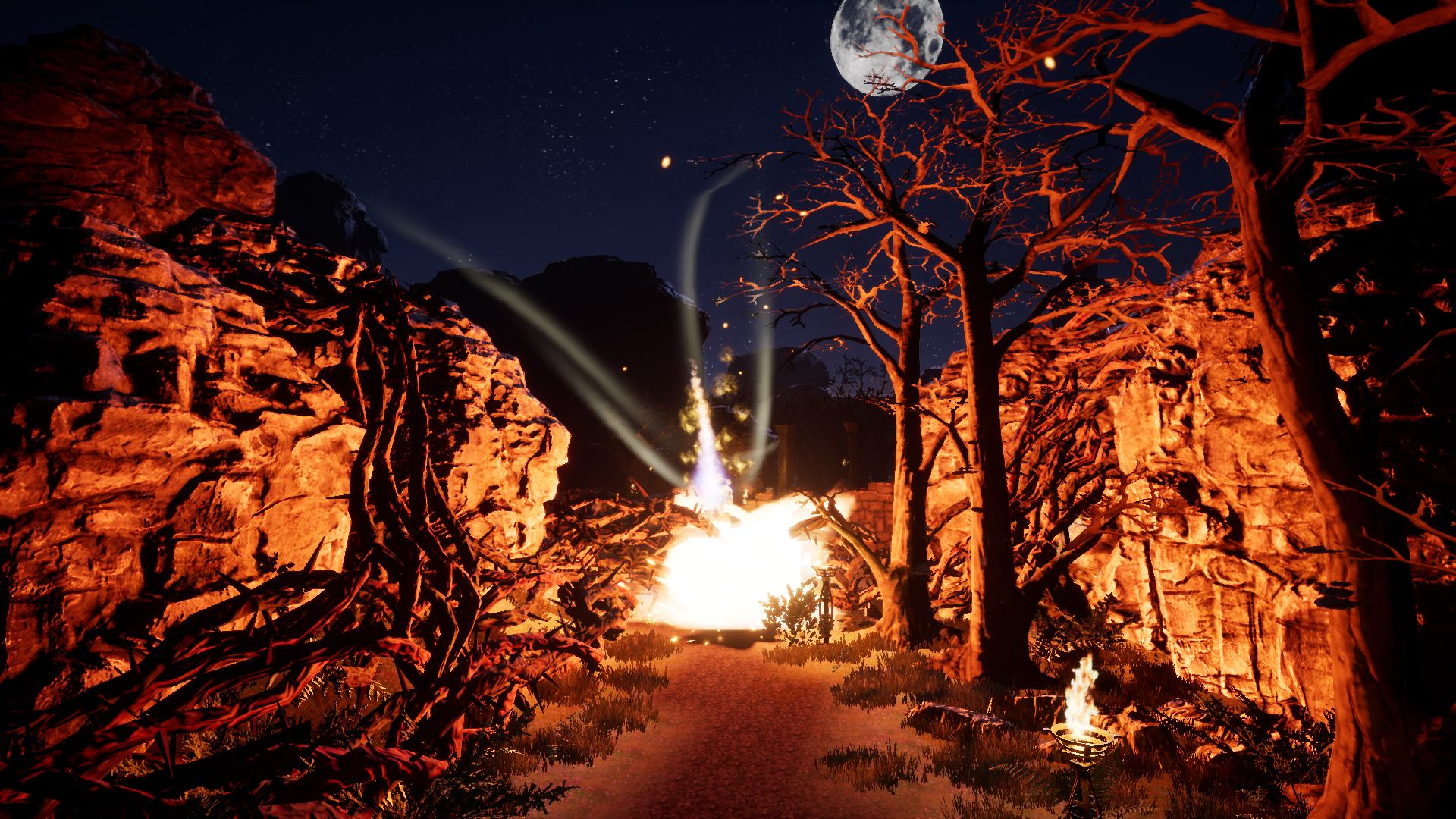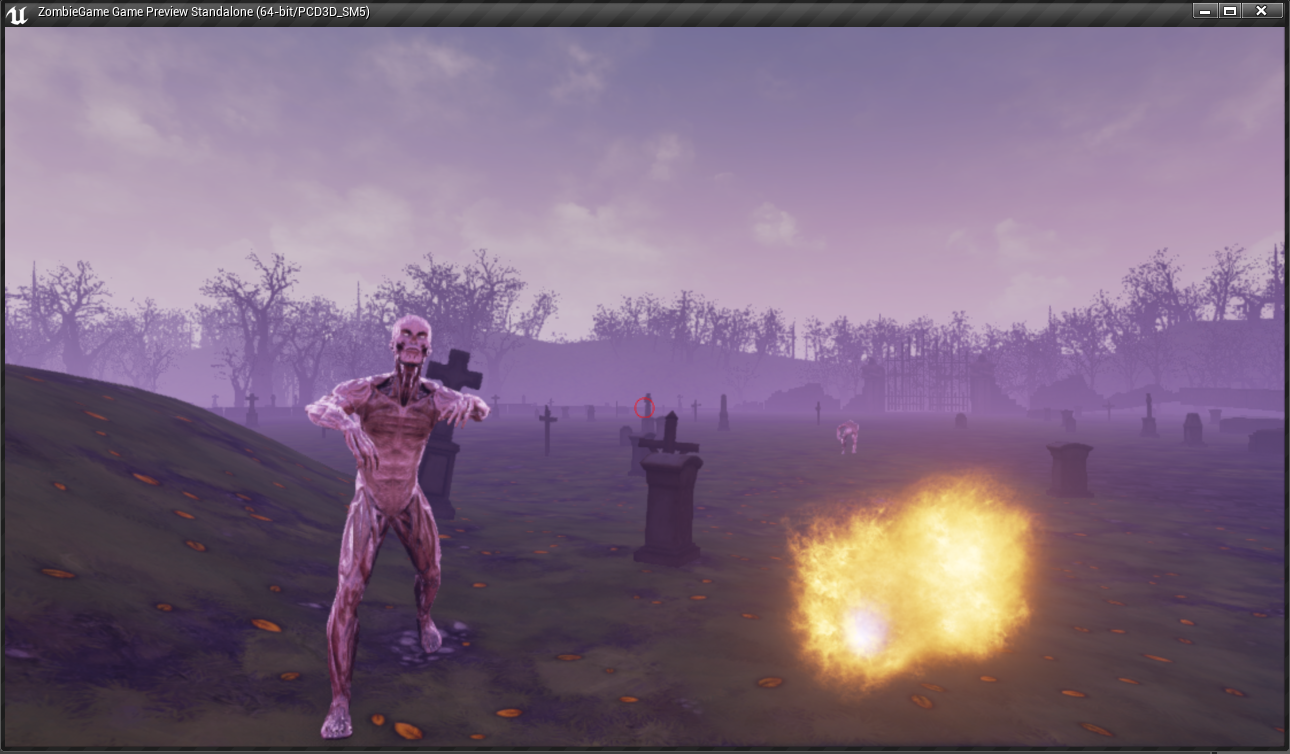9 tips for creating indie games from a single developer
 Game development alone provides amazing creative freedom and poses incredibly complex tasks . Anyone who has worked in a project solo (by choice or else for some reason) knows how difficult it is to do all the work yourself. Plan everything and make sure that each small piece combines with each other to bring the vision on the “Idea” stage into reality, this is a huge stress - and when a problem arises, there is no one to blame but yourself.
Game development alone provides amazing creative freedom and poses incredibly complex tasks . Anyone who has worked in a project solo (by choice or else for some reason) knows how difficult it is to do all the work yourself. Plan everything and make sure that each small piece combines with each other to bring the vision on the “Idea” stage into reality, this is a huge stress - and when a problem arises, there is no one to blame but yourself.Eric Nevala ( @slayemin ), the founder of Wobbly Duck Studios , knows first-hand the development of the game from scratch. He has been working on his Spellbound game for more than five years, and it has not always been easy ...
His experience as a solo developer allows him to share many tips on how it will look for those who are thinking about creating their own video game or any other kind of product.

')
Council number 1. Pump up the basics: you need some knowledge and experience
You cannot paint a good portrait without understanding how colors work, just as you cannot make a good video game without understanding anything in programming.
Nevala first wanted to become a software developer as early as 14. He played Commander Keen, an old-school platformer where you collect all kinds of candy and jump on monsters using pogo-stick.
“Once in the summer it dawned on me,” says Nevala, “I thought something like ...“ Nichrome myself! Someone made my favorite game! ”, And also wanted to make a game. I found that you need to be a programmer if you want to make games. Whatever is needed to create games, I'm going to do it. ”
It was still in those days when the Internet was not something special, then there was no YouTube or technical forums that could be used for training. Nevala said that he was trying to learn QBasic, a programming language for beginners, using a useless help file.
“It was really difficult, and I almost gave up,” says Nevala.
In high school, there were courses in visual programming, he took them and studied well, because he was extremely motivated. However, he did not keep up with the program. However, he did not give up on his dream and continued to move forward.
After graduating from high school and having graduated from college a bit, Nevala began working in software development as a freelancer, mainly creating websites. He then served in the Marine Corps in reserve in the civil affairs department. As the webmaster of this unit, his task was to create tools for use in restoring the infrastructure of Iraq after the invasion of 2003.
“We had all these different projects being carried out by all these different parts, such as the engineering corps and the construction battalion of the Navy, and nobody was watching anything,” said Nevala, “all of this was pretty much just Excel spreadsheets. So I spent about three months creating the tool from scratch. ”
Three months, 18 hours a day and 20,000 lines of code later, Neval provided a tool that simplified project management. He said that the impetus for such hard work was a desire to help the people of Iraq.
“The idea was that the faster I completed this project, the faster we could bring peace to the country,” said Nevala. “This was my motivation.”
After serving for 18 months, he worked as a contractor in Afghanistan, setting aside everything he could to create his own studio. He founded Wobbly Duck Studios in 2013.
Council number 2. You must have a goal
Having something that you want to achieve with the product you are making will go a long way in motivating you to work on it. When Nevala created the necessary tool in Iraq, he wanted to help establish peace in the region. With Spellbound, he wants to make people better through storytelling.
“I think that people are fighting each other because of misunderstandings and differences in values,” said Nevala. “My idea is that people get information to shape their values, in part thanks to the media they consume, including video games, so maybe I can use games to help people become better by telling them about some ideas ".
Nevala believes that stories in any media are a way to instill value in people. With Spellbound, he wants to tell fascinating stories, so that people stop and take a step back to think about other worldviews, and give people the best way to understand each other.
“My goal with Spellbound is to tell stories that give people a better idea of how they act and what the nature of evil is.”
Council number 3. Your plans will change more than once.
Spellbound did not start as an exciting virtual role-playing game . Like many other projects, the game began its life as something completely different. In fact, Spellbound started as a turn-based strategy. The only similarity between the first version and what it is now was that it was oriented towards wizards.

“It was supposed to be a game that I thought it would be fun to play,” said Nevala. “I felt that no one had yet fought the wizards correctly, so I wanted to change that.” I wanted to bring a new scale of battle to the battlefield. ”
Then Neval got some VR equipment after he tried Oculus Rift at the bar, and the development went the other way. With a new market he could enter, he had new ideas.
"At Steam there is a lot of competition, especially for independent developers," said Nevala. - I looked at it and thought it was terrible. If I had released something that would be lost in the ocean of games before someone even started playing, it would be a huge disappointment. ”
VR has just appeared, and Nevala thought that it could occupy a niche in the market.
“Being a big fish in a small pond is much easier than a small fish in a big ocean,” he says.
Council number 4. You will need help
Even if you are a jack of all trades, you are probably just a master in some things. You will need outside help for everything that you cannot do on a fairly good level.
When Nevala discovered Wobbly Duck Studios, he worked alone for a year, and Spellbound is a game he originally created alone. However, the game is not a game without visual effects, and he needed an artist. So he hired Dan Lane.
“Dan is one of the few who also made a significant contribution to this project,” said Nevala. “I say that this is my game, but there are others who worked on Spellbound along with me, but, nevertheless, Dan and I brought a greater contribution to the project.”
Sometimes you need to look for help, sometimes it comes from where you are not waiting. In 2015, Nevala began to demonstrate its game. He had visual effects, gameplay, but not enough music.
Frantz Widmaier , an independent composer, saw the game on Reddit and offered to make music for her.
“The best thing about writing music for VR is that you look at the stage when you look at the level,” Widmeier said. “I plunged into the world to create a more exciting soundtrack.”
Sometimes, when independent artists work together, everything turns out right away, and this is a good experience for everyone.
“It was great working for Neval,” said Widmeier. - It always seems to him that he is working on something advanced. I am usually the one who wants to try this or that, but this time it was him.
The other side: the art of bargaining

External assistance does not have to be expensive. Sometimes the one you know can be a source of new talent. Nevala works in a common office space, and one of the other tenants, Cody Cannell, who worked there in 2015, turned out to be a musician who wanted to learn about game development.
Therefore, Nevala offered him a deal. If Cannell makes some sound effects for Spellbound, Neval will teach him how to program.
The project was simple, just a little ping-pong game. But this was enough to push Cannell to search for a specialized education in the field of software development.
Nevala also got what he needed. Cannell used his own voice to create sound effects for zombies and ghostly enemies at Spellbound.
Council number 5. Be able to recognize if something is not worth it.
Despite the fact that Nevaly still had initial savings, besides earning money from consulting work on the side, he quickly realized that game development is expensive. He went to an event where he wanted to present his product to a group of investors, hoping that they would invest in his game, but all this turned out to be a failure.
“It was just a bunch of old men with a bunch of money who sat around and drank wine,” said Nevala. “Theoretically, the winner would be given some money, but in reality no one got the money, and investors just got drunk.”
Attempting to present a VR game to a group of elderly people who really do not know what a video game is, let alone virtual reality, is doomed to failure.
“It's like talking to them in Greek,” said Nevala. - If I could turn the clock back, I would not even go there. I had to pay 500 dollars for the “privilege” of communicating with them. It was a waste of time and money.
The greatest lesson that Nevala learned from communication with investors was the following: first, software development and its sale are two different things, and second, he will have to hear no more.
“I learned from this all that you need to beat 50 times and hear 50 times“ no ”until you get over it,” he said. “But you have to go through this to get the long-awaited“ yes. ”
However, losing money is normal for a business. At another event, Nevala talked with the CEO named Archie Gupta, who told him that he should be ready to lose 50% of his money.
“When he told me to look at the position of his company, I realized that he was telling the truth,” said Nevala. “When you first start, you are like a blind person, walking from one end of the maze to the other.” To reach the end, you have to go through many dead-end paths, but you will not know that this is a dead end until you reach the end, and you have to go back to try a different path. ”
Council number 6. Learn to manage what you have
In 2015, Nevala had a working Spellbound demo, he just needed a way to show it, and PAX, a massive game event that takes place in several US cities, including Seattle, seemed like a great way to find people who would appreciate his game.
“If you wanted a booth at PAX, you had to pay a ridiculous amount,” said Nevala. - Another option is to become part of MEGABOOTH. I tried, but they didn’t accept me because they thought that my game was not up to par or I wasn’t active enough in the community. ”
Thus, he was not actually at PAX, but he wanted the public to play his game, and his office was across the street from Benny Royal Hall, right in accordance with the law of the world. He could use the PAX attraction to chop off several participants for himself, using several homemade sandwich boards, laminated posters and his girlfriend, asking people to come and play his game.
“On this day, about 100 people came to us,” said Nevala. “The feedback we received was pretty good.”
He said that the confirmation he received from people made him feel that he was on the right track, and all he needed to do was to continue to improve the game and improve it.
Council number 7. Inspiration is everywhere

During a demonstration in the office adjacent to PAX, a little girl of about 8 wanted to play this game.
“Are there fairies there?” She asked.
"No, no fairies," answered Nevala.
"What about unicorns?"
“No, there are no unicorns either. It's a pretty dark and scary game, ”he said.
However, the girl wanted to try the game. She put on a virtual helmet and connected. Like everything that day, she was amazed at the virtual world that surrounded her. She happily looked at the starry sky and atmospheric forest.
Until she saw the first zombie heading toward her. Then she began to cry, tore off the (expensive) headset and ran to her mother.
For some, this was an unpleasant moment, but Neval thought that it was necessary to rethink some aspects of the game.
“It was supposed that in the original game it was about this red wizard using elemental magic, but for this little girl I want to create a game that she would be happy to play,” he said. - Something not at all violent. So the next series, if I go this far, will be a sorceress of the world who uses diplomacy and peaceful magic to establish peace in the world. ”

Even the game mechanics can be inspired by everyday events. One of the most innovative features of Spellbound is movement. Instead of using teleportation, the wizard is controlled by the player, waving his arms forward and back.
“I cannot teleport a player away from the zombies,” said Nevala. - It completely negates the fear factor. I needed something natural and not violating the game mechanics. ”
After a month of brainstorming the Neval movement system, going to work, he noticed that he was waving his arms as he walked.
“It was a revelation moment for me,” he said. - I spent about a month trying to make it work. It was not easy, because people go forward, based on where their hips stand, not their head. It was difficult to make the system work in VR, I spent about 3 weeks developing and overcoming difficulties. ”
Council number 8. You probably fail miserably
Due to the lack of investors and the lack of motivation to find at least some, Nevali’s money began to run dry. In 2016, Dan Lane, the artist with whom Nevala worked for so long, left the project. Increased financial pressure hampered the development of Spellbound, and Neval ran the business, renting out rooms and his car to be able to work in the office.
The situation with debts, the absence of a permanent artist and periodic temporary staff lasted for several years, until in November 2018, Nevala reached the bottom.
“I had no money at all,” he said. - I did not eat for several days, and if I did, it was just oatmeal. Just a minimum to stretch until the next day. I had to urgently find the money. It was a really scary time. ”
He was angry with himself for letting the process reach this point.
“I shouldn't have done that,” said Nevala. “I needed to make sure that I had enough money to fill my stomach.”
Council number 9. Do not give up! Always remember what you are trying to create
To earn money for food, Nevala tried to sell several openers on the farmers market. It was awful to watch people try a product, but they don’t buy anything.
But by the end of the day, he managed to get a little cash, enough for food.
“It was a good experience,” said Nevala. - It showed me that when I pressed to the wall, I can still sell. I'm still in business. ”
Even with all these monetary problems and the tremendous amount of work and uncertainty associated with the single game development, Nevala continues to work on this, slowly but surely.
“I’m making so much effort because I think this is my greatest job,” he said. - This is a masterpiece of art that expresses my personality. If the creation of this game will take me 10 years, so be it.
For Nevala, Spellbound is a work of art that will live after it.
“If you look at the artists of the Renaissance, they survived the era at the expense of their creations,” he said. “They are remembered for what they did.” I hope it will be not only part of who I am, but also what will change how people look at the world. ”
Nevala said that his problems are by no means unique. The struggle to create your own game is what almost all indie developers face.
“[These challenges] are what every indie developer will face, especially a loner,” he said. - Survivors are very, very few. It's like winning the lottery, but the survivors get all the attention, and this is an inspiration for all of us. ”
Source: https://habr.com/ru/post/444178/
All Articles